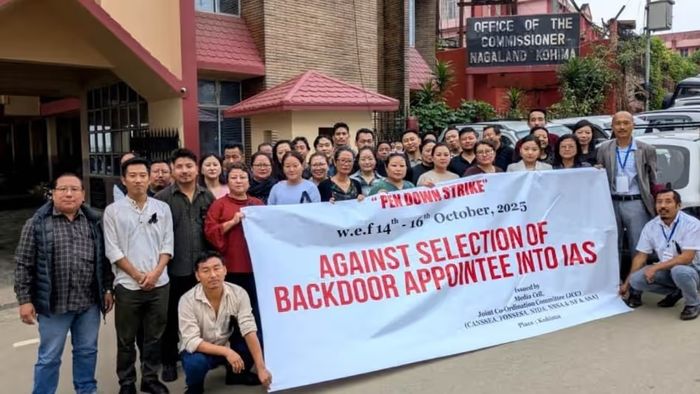Civil service associations challenge Nagaland government's IAS induction claims
Nagaland civil service associations dispute government claims on IAS officer induction figures. They call for transparency to ensure proper state representation in the IAS cadre

- Nov 01, 2025,
- Updated Nov 01, 2025, 8:50 AM IST
A coalition of civil service associations has issued a sharp rebuttal to the Nagaland government's justification for inducting non-State Civil Service (SCS) officers into the Indian Administrative Service, calling the move constitutionally questionable.
The Joint Coordination Committee (JCC), representing five civil service associations, including CANSSEA, FONSESA, NIDA, NSSA, and NF&ASA, systematically dismantled the government spokesperson's defence in a statement released on October 31.
At the heart of the dispute lies the inclusion of what the JCC terms "irregularly appointed officers" — individuals who entered government service without following constitutionally mandated recruitment processes — in the IAS induction panel.
The government spokesperson maintained that authorities "acted within the constitutional framework over IAS induction" and defended the inclusion of "regularised officers serving with integrity and seniority" who had "earned their due consideration."
The JCC rejected this premise entirely. "How is it within the constitutional framework when the very entry into service of irregularly appointed officers had been in violation of the constitutionally mandated process of recruitment, namely in violation of Article 14 and 16 of the Constitution of India," the committee stated. "Induction into the IAS is not akin to attaining Sainthood, where your past sins are forgiven. We are still on Earth where the rule of Law prevails."
The associations invoked the Supreme Court's landmark 2006 judgement in Uma Devi versus State of Karnataka, which established that regularisation of irregularly appointed employees does not remedy the defect of initial appointment.
When the government argued that officers who "prove their capability through service and responsibility" deserve advancement even without clearing competitive examinations, the JCC termed it ironic. The committee noted that such a position amounted to defending those who had violated Article 16 of the Constitution whilst simultaneously pleading for equal opportunity.
The government also cited a Supreme Court judgement from Rajasthan that upheld the inclusion of a non-SCS officer, suggesting comparable circumstances. The JCC dismissed this comparison, clarifying that the Rajasthan case concerned reserved seats for non-SCS officers — a procedural matter — whilst the Nagaland situation involves irregularly appointed officers being included in the induction panel.
"The Government must not whitewash backdoor appointees and glorify them," the statement concluded.
The media cell of the Joint Coordination Committee issued the response from Kohima, continuing what appears to be an escalating confrontation between career civil servants and the state administration over recruitment integrity.